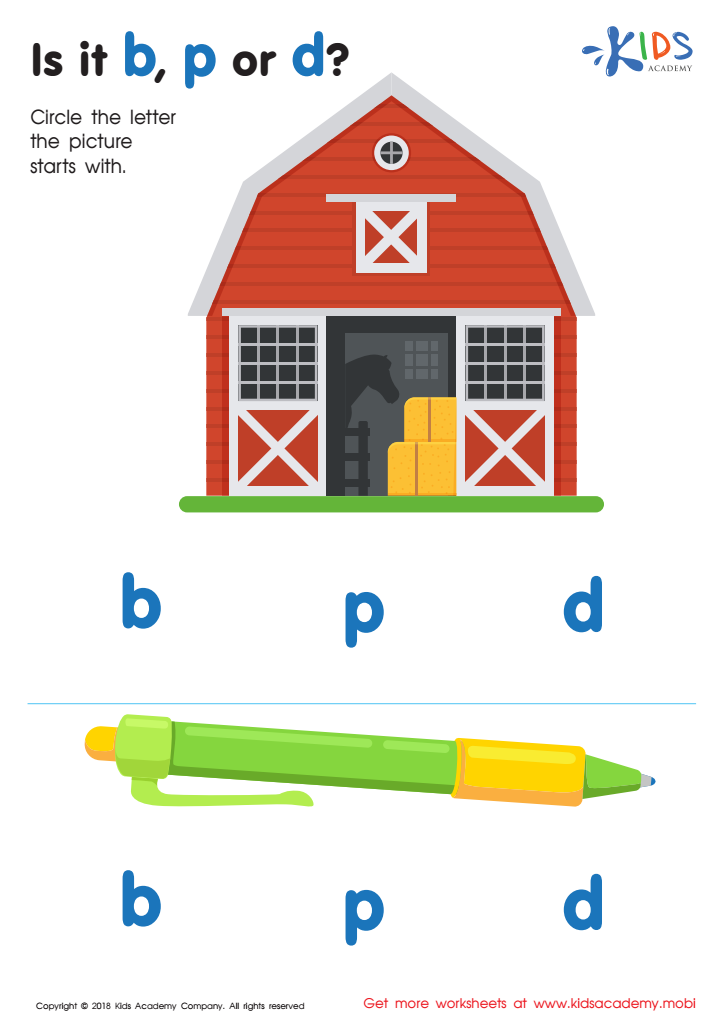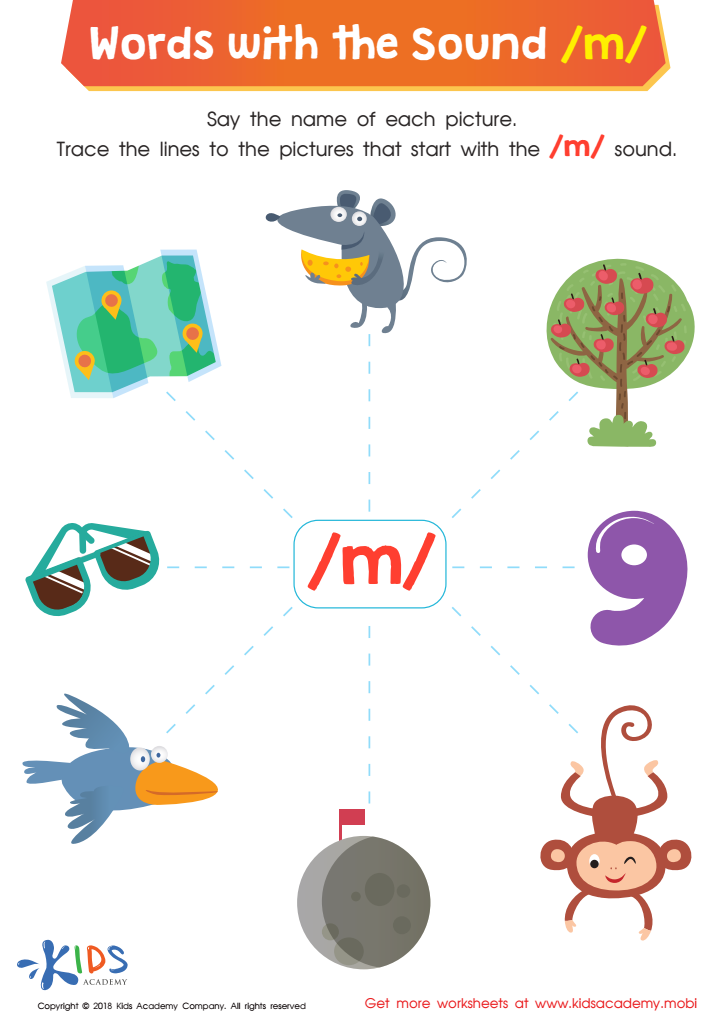Phonics practice Normal Beginning Sounds Worksheets for Ages 5-6
5 filtered results
-
From - To
Unlock your child's reading potential with our Phonics Practice Normal Beginning Sounds Worksheets for Ages 5-6! Perfect for kindergarteners, these engaging worksheets are designed to reinforce early literacy skills by focusing on the initial sounds of words. Each vibrant, kid-friendly exercise invites young learners to match pictures to their corresponding beginning letters, fostering phonemic awareness and establishing a strong reading foundation. Ideal for classroom use or at-home practice, our expertly crafted phonics worksheets make learning fun and effective. Help your young reader develop the skills they need for future academic success with Kids Academy's comprehensive phonics resources.


Twin Onset Worksheet


Is it b, p or d? Worksheet


Words with sound p Reading Worksheet


Words with sound f Reading Worksheet


Words with Sound M Reading Worksheet
Phonics practice, particularly focusing on beginning sounds, is crucial for children aged 5-6 as it lays the foundation for strong reading and literacy skills. At this developmental stage, children are typically in kindergarten or early first grade, a critical period for language acquisition. Understanding beginning sounds helps young learners to decode words, which is the first step towards fluent reading. By associating letters with their corresponding sounds, children can begin to phonetically decode new words, promoting both reading accuracy and speed.
Moreover, phonics practice enhances phonemic awareness, the ability to hear, identify, and manipulate individual sounds in spoken words. This skill is essential for understanding the alphabetic principle, connecting written language with verbal sounds. Proficiency in beginning sounds also builds confidence in young readers, encouraging a positive attitude towards learning and exploring new texts.
Beyond reading, strong phonics skills support spelling and writing abilities, as children can apply their understanding of sounds to construct words independently. By caring about and investing time in phonics practice, parents and teachers can provide children with critical tools for academic success, fostering not only literacy but a lifelong love of reading and learning. This early intervention can have lasting impacts on a child's educational trajectory and overall development.

 Assign to My Students
Assign to My Students















